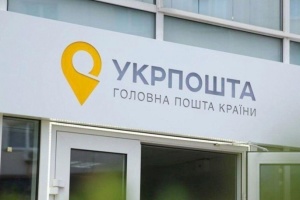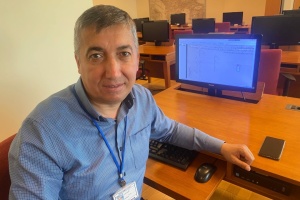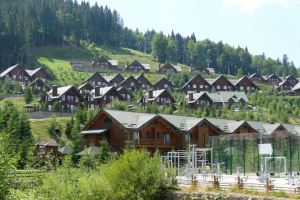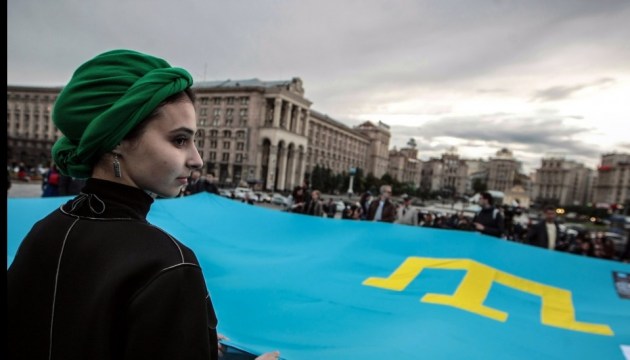
"Alternative Mejlis" and other Russian imitations in Crimea
Russia's occupation and attempted annexation of Crimea and Sevastopol remain the focus of Ukrainian foreign policy. Ukraine has recently won at least two tangible victories in this long track of de-occupation of its territory.
For example, on November 14, the Third Committee of the UN General Assembly approved a draft resolution "Situation of human rights in the Autonomous Republic of Crimea and the city of Sevastopol, Ukraine." The document, co-authored by about 40 countries, condemns all attempts by Russia to legalize its efforts to annex Crimea, including the automatic imposition of Russian citizenship, the conduct of illegal election campaigns, and a change of the demographic structure of the Crimean population. The draft resolution on Crimea also used the definition of "aggression" for the first time.
Prior to that, on November 8, the International Court of Justice recognized that Ukraine had provided sufficient evidence that racial discrimination in Crimea is the area of its jurisdiction. At the same time, Ukraine's case against Russia in this court is moving forward and will be considered on its merits. Two years ago, on April 19, 2017, it was this important international judicial institution that made the decision to apply provisional measures, obliging Russia to refrain from applying or keeping in place restrictions on the ability of Crimean Tatars to preserve their own representative institutions, including the Mejlis of the Crimean Tatar people, and to provide access to education in Ukrainian.
On the initiative of the Permanent Mission of Ukraine to the International Organizations in Vienna and with the support of partners, an item on the agenda of a weekly meeting of the OSCE Permanent Council sounds like "Russia's ongoing aggression against Ukraine and illegal occupation of Crimea." The vast majority of participating countries continue to condemn Russia's occupation of Crimea and regular violations of human rights and harassment on the peninsula.

PRESENTATIONS OF PUPPET CRIMEAN COLLABORATORS ABROAD
Since the occupation of Crimea, Russia has been active on the international stage in terms of legitimizing the illegal annexation of Crimea, and these efforts have only doubled since the April 2017 UN tribunal ruling. The Kremlin works here in two dimensions: both on the general recognition of Crimea as being part of Russia and on the creation of illusions about the implementation of the ICJ ruling and the alleged absence of racial discrimination in the Autonomous Republic of Crimea.
Fake international delegations come to the occupied peninsula, and abroad Russia tries to promote its puppet collaborators from Crimea whenever possible, either at bilateral meetings or international forums. And they are already lying about the "reunification of Crimea with the Russian Federation," how bad it was in Ukraine, how it oppresses minorities, how bad the Mejlis is, and that Russia is a "paradise on earth."
Reports of Russian provocations and attempts to legitimize the occupation of Crimea have become frequent in recent months: a "Turkish-Crimean economic forum" is being held at an Istanbul hotel, Crimean collaborators - Russian State Duma deputies Ruslan Balbek and Natalia Poklonskaya – attend an inter-parliamentary conference in Istanbul, numerous puppet organizations from Russia justify the aggressor at an OSCE meeting in Warsaw, Balbek and his associates again talk about a wonderful life in "Russian Crimea" at a UN forum in Geneva...
It will just suffice to mention a provocation with the pro-Kremlin Crimean Tatar organization Qirim Birligi ("Crimean Unity"), whose representative was promoted at a reception organized by the Czech president in Prague. The representative took a photo with the Czech prime minister and posted it on Facebook with a comment saying, "our activity was noticed at the international level," "thank you for annual invitations to the birthday of the Czech Republic," "Czech President Zeman recognized Crimea as part of the Russian Federation," etc. Subsequently, it turned out that no one invited her there, and they did not know what was said, and that Zeman, though a pro-Russian politician, did not say that. She came to the reception as allegedly a family member of one of the invited members of the NGO World Council of Carpatho-Ruthenians.
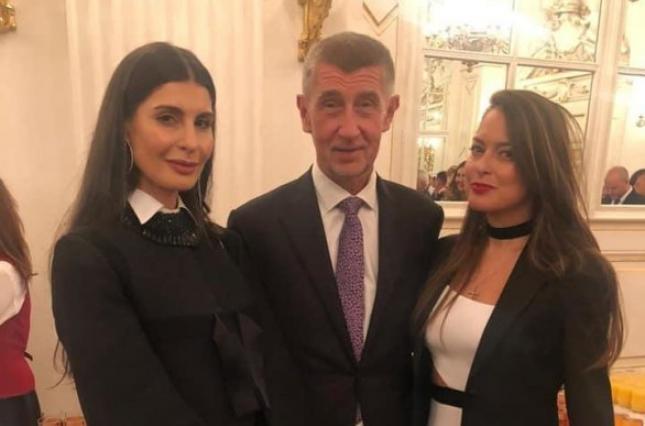
The latter, however, is another Moscow-controlled public organization that acts to destabilize the situation in Ukraine, and its representatives illegally visited Russia-occupied Crimea. However, Qirim Birligi is now called by Russian news agency TASS as "an alternative to the Mejlis of the Crimean Tatar people banned in Russia."
IMITATION INSTEAD OF IMPLEMENTATION
The already mentioned "racial" case in the International Court of Justice, according to many experts, has every chance of becoming a loss for Russians and cost them dearly.
"After the Russian Federation illegally banned the Mejlis of the Crimean Tatar people, the International Court of Justice approved an order in the case of Russians violating the Convention on the Elimination of All Forms of Racial Discrimination in which it demanded that Russia lift the ban on the Mejlis. The Russian Federation, of course, will not do it, but it wants to imitate, to make a fake," according to Borys Babin, an expert from the Crimean Tatar Resource Center. "It was after the approval of this order that Russians increased their activity to create various fake entities. As an example, they held the so-called 'Kurultai of Crimean Muslims' that elected a certain board. And all these strange people began to assert some sort of succession to the Mejlis," he said.
According to him, Russians are going this path. On the one hand, they imitate the presence of some entities that represent the Crimean Tatar people, and on the other hand, on the international stage, they promote the concept that the Crimean Tatar people allegedly supports Russia's annexation of Crimea. "They have a clear task of legitimizing the so-called 'reunification of Crimea with Russia.' Russians give such collaborators a key role, because the Crimean Tatar issue is now raised in many international organizations," Babin said.
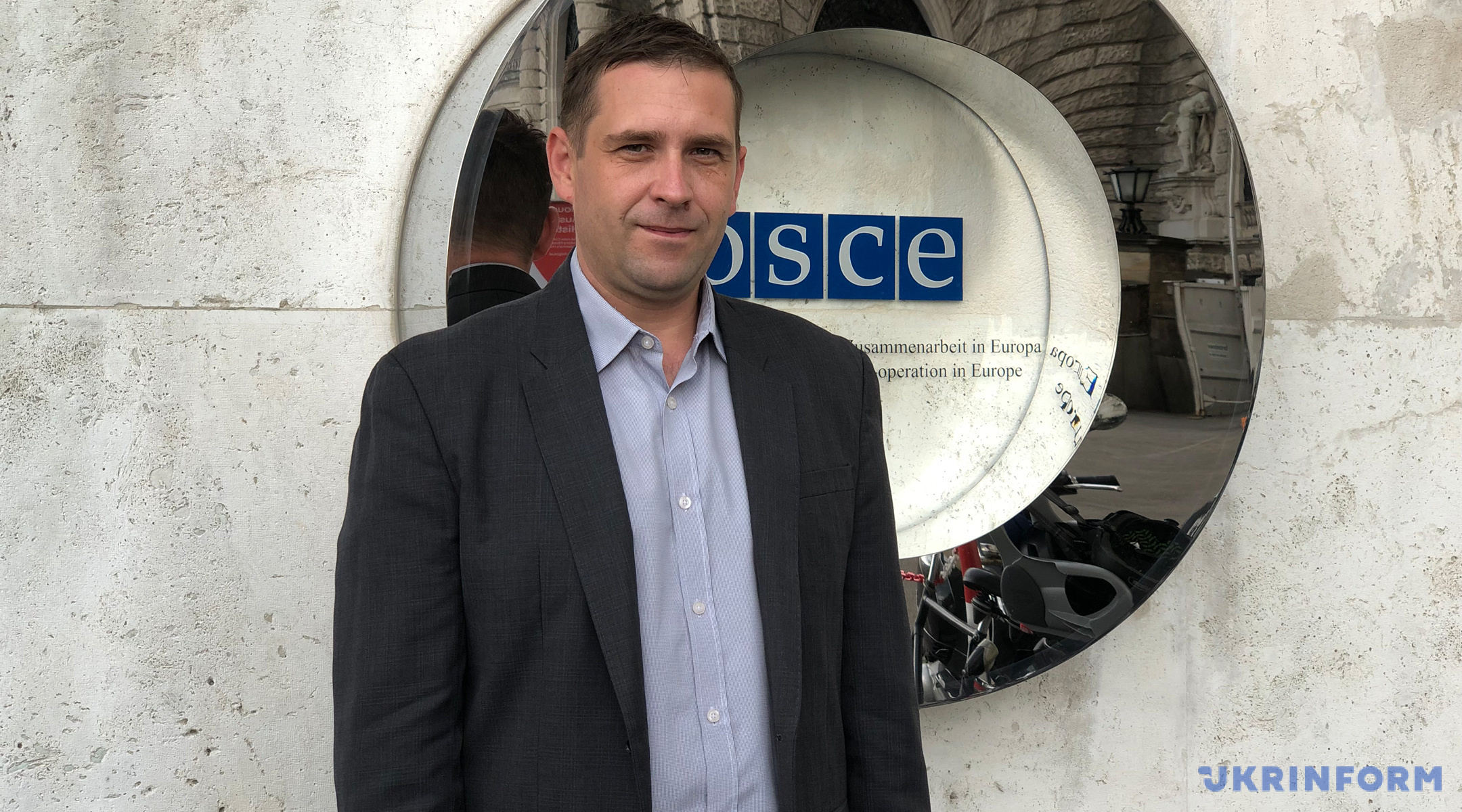
He also recalls that the International Court of Justice has ruled not only to lift the Mejlis ban but also to provide education in the Ukrainian language in Crimea.
"What we have today is that Russians report in official documents that two invaders-controlled schools with instruction in Ukrainian allegedly operate in Crimea, with up to ten classes with the Ukrainian language of instruction in some schools and Ukrainian taught as a subject in different schools. But in reality, it is a fake. Because public activists visited these schools and saw that there is no teaching of the Ukrainian language there. There is no methodological support either. These are purely Russian-speaking schools, but somewhere on the papers it is written that they are Ukrainian-speaking," Babin said. .
According to the expert, Russians understand that they are losing in the International Court of Justice and have set a course for imitation: "Their only way out is imitation. Fake entities, fake schools, fake 'mejlises'."
FAKE ALTERNATIVE TO MEJLIS
And how can they bypass the execution of a judgment of the International Court of Justice, which provides for the removal of restrictions on Crimean Tatars preserving their own representative bodies? It is correct to say that the banned Mejlis is not such an institution and does not represent Crimean Tatars. And on the peninsula, in fact, there are supposedly other organizations and institutions that are "true representatives" of Crimean Tatars.
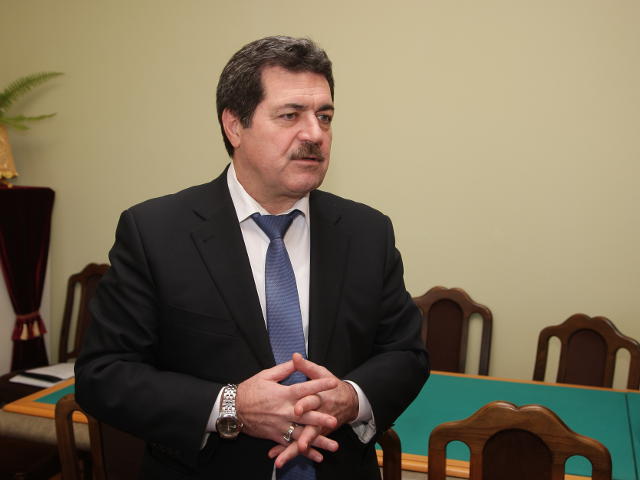
It is known that during and immediately after the occupation, Russia tried to incline members of the Mejlis as a representative and executive body of the Crimean Tatar people and Kurultai as the supreme representative body of Crimean Tatars. When it became clear that nothing would work, Russians called the Mejlis an "extremist organization" and banned it in September 2016, thereby violating the collective right of Crimean Tatars to manage representative institutions.
At the same time, various Kremlin loyal organizations were formed, hoping that they could be shown as an alternative to the Mejlis. First of all, they are Qirim, headed by former deputy chairman of the Mejlis Remzi Ilyasov (2001-2013), Qirim Birligi from the former head of Henichesk District State Administration Seitumer Nemittulaev, as well as the "Regional National and Cultural Autonomy of Crimean Tatars of the Republic of Crimea," headed by Ruslan Balbek.
"One of the Qirim leaders turned out to be a former deputy chairman of the Mejlis, and Russians thought he was rather influential and could influence the Crimean Tatar people. They supported initiatives such as Qirim, Qirim Birligi, the so-called 'national and cultural autonomy of Crimean Tatars,' various NGOs, hoping that Crimean Tatars will follow them. But it did not work for them. Moreover, Crimean Tatars began to carry out a kind of social boycott of these people - they simply distanced themselves from them at wedding or funeral ceremonies," according to Mejlis member Eskender Bariev, chairman of the board of the Crimean Tatar Resource Center.
This "system of representative institutions of the Crimean Tatar people" of the Russian version also includes the "Council of the Crimean Tatar people" headed by another collaborator, Mufti of Crimea Emirali Ablaev. Here, the Russian authorities and their propaganda media outlets have been particularly prominent in manipulating public opinion and changing concepts. Even before the occupation of Crimea, in parallel with the Kurultai of the Crimean Tatar people, there was a Kurultai of Crimean Muslims. The congress was religious in nature, it brought together imams from various localities and mainly dealt with the election of the Mufti of Crimean Muslims, with no relation to the representation of the Crimean Tatar people.
Russians obviously decided: Why not replace the Kurultai of the Crimean Tatar people with this Kurultai and the Mejlis of the Crimean Tatar people with the council ("mejlis") created by this Muslim Kurultai? That was done in early 2018. In February, they initiated a meeting and called it "An extraordinary extended Kurultai of Crimean Muslims," which declared the creation of a "Council of the Crimean Tatar people." In March, the occupying power of the Autonomous Republic of Crimea reported that the so-called "Council of Crimean Tatars under the Head of the Republic of Crimea" was created on the basis of this "council" as a consultative and advisory body.
"Russians were able to enlist the support of the Mufti of Crimea, who was still before the occupation. In agreement with the Russian authorities, the Muslim Kurultai was held in an attempt to replace the Kurultai of the Crimean Tatar people. They made a number of decisions there and even laid claims to the property of the Mejlis in Crimea, although nothing then worked for them," Bariev said.

He stressed that this Muslim Kurultay, attended by imams, can in no way replace the Kurultai of the Crimean Tatar people, which is elected during the Kurultai (congress) by secret ballot by all Crimean Tatars with voting rights.
The same applies to Qirim Birligi, which TASS granted the status of an "analog of the Mejlis," or any other public organization or political party.
"In any case, Qirim Birligi cannot be an analog of the Mejlis and represent the Crimean Tatar people. Like any other public organization. They were not chosen by the Crimean Tatar people. Therefore, any such statements in this regard are insinuations of the Russian Federation in order to demonstrate to the international community that allegedly the rights of the Crimean Tatar people are not violated in Crimea," Bariev said. "Qirim Birligi is a group of like-minded people, consisting of several dozen people, most of whom are family members. This is the same thing as comparing the Verkhovna Rada of Ukraine to some NGO called 'Beer Lovers' or 'Patriots of Ukraine'," he said.
According to him, there is a whole system of national self-government of Crimean Tatars, and it has not gone anywhere, despite a Russian court ban.
"It should be understood that there are 250 Kurultai delegates legally elected in 2013, of which 33 are members of the Mejlis. In addition, there is a system of local and regional mejlises - another 2,500. There is also the Central Election Commission of the Kurultai with 17 people," he said. "Russia is trying to show some alternative to the Mejlis, but it's almost impossible because the Kurultai is elected during the elections and the Mejlis is elected during the Kurultai. And no organization they would nominate is going through all these stages. There is also a succession from the first Kurultai of 1917. The Mejlis (and the Kurultai) is recognized in Ukraine as a representative body of the Crimean Tatar people. The Mejlis is also recognized by other countries and international organizations, including the UN."
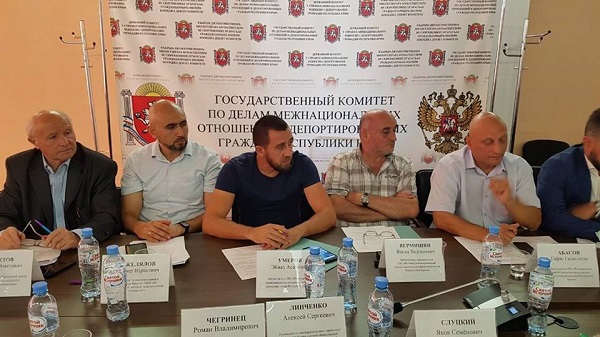
FAKE "NATIONAL-CULTURAL AUTONOMIES"
In March this year, Russian Permanent Representative to the OSCE Alexander Lukashevich told the delegations of participating countries about the "progressive" program of ethnocultural development of the peoples of Russia "Republic of Crimea - Territory of Inter-Ethnic Concord 2018-2020" during a meeting of the OSCE Permanent Council. The "Council of Crimean Tatars under the Head of the Republic of Crimea" was mentioned there as well. But he also told about numerous national-cultural autonomies in Crimea.
And this is another line of work of the Russian occupation administration in Crimea. They use national minorities of different countries on the international stage to influence the political leadership of these countries to legitimize the annexation of the Autonomous Republic of Crimea. It is also a tool to show the International Court of Justice the absence of racial discrimination in the occupied peninsula.
"The position of Crimean Tatars has always been to create Crimean Tatar autonomy. Russians have replaced the concept by creating so-called 'national-cultural autonomies.' All of them are registered as public organizations. Their purpose is to confuse ordinary people. But they are also created to show the world that in Crimea there is allegedly no racial discrimination, that Russia creates the conditions for the development of all ethnic groups," Mejlis member Eskender Bariev said.
In total, the invaders said they had created "80 local and 14 regional national-cultural autonomies, representing 19 nationalities." They are all registered as NGOs. The list of "regional national-cultural autonomies" can be found here.
Borys Babin, former representative of the Ukrainian president in Crimea, is convinced that such manipulations by the Russian side should not be underestimated, because, though fake, these "national-cultural autonomies" can be an integral tool in the Kremlin's geopolitical game.
"Russians are actively creating 'national-cultural autonomies' of ethnic groups in Crimea, in particular, Greeks, Armenians, Bulgarians, or Estonians. For example, there is no Estonian in the 'National-Cultural Autonomy of Crimean Estonians,' except for FSB officers. But the title sounds fine. And this 'autonomy of Crimean Estonians' can come and say: 'Dear Estonia, you have to recognize the reunification of Crimea with the Russian Federation, because Russia guarantees Estonians all rights here, we support it and, in general, we live here better than in your capitalist Estonia.' Or it may say: 'Change your policy on Crimea, or there will be no Estonian in Crimea.' And this will come not from officials, but from this organization that 'protects' the Estonians of Crimea," the expert said.
"Similarly, there's a fake 'autonomy of Crimean Bulgarians' working with Bulgaria, a fake 'autonomy of Crimean Germans' working fruitfully with Germany and Austria. Russians have calculated this policy very well and there are many influences here," the expert added. "It is also a tool of counteraction to Ukraine, a tool of not losing international disputes, and also a tool of destabilization of the situation in mainland Ukraine. If we take these 'ethnic organizations,' it's actually a tool of influence on respective states, not only on the Crimean issue, but also on any issues. If Russia needs some fake organization for work with Germany on the legalization of Crimea, here it will use Crimean Germans. And a pro-Russian German politician may tell his constituents: 'Of course, we condemn it all, but there are Germans there, our brothers, we should help our brothers, they live there, and we need to help them somehow..."
Vasyl Korotkyi, Vienna


